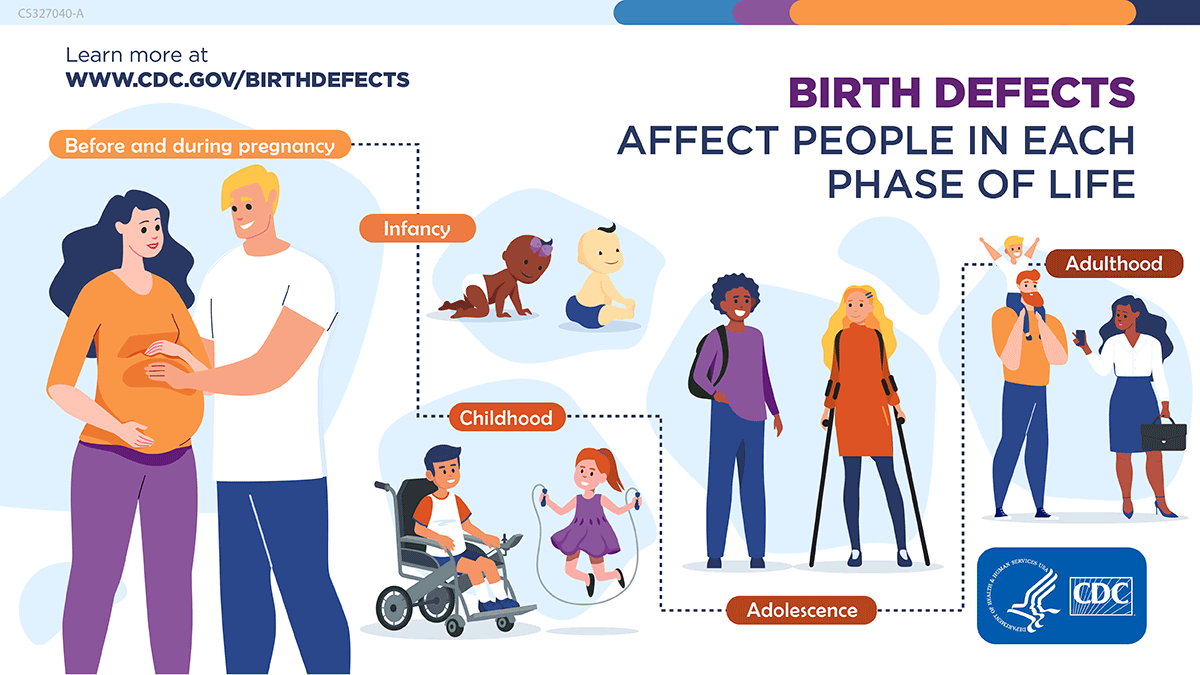CDC recognizes January as National Birth Defects Awareness Month. This is a time to raise awareness about birth defects and highlight efforts to improve the health of people living with these conditions across their lifespan. Join the nationwide effort to raise awareness of birth defects and their impact on individuals, parents, and families.

Awareness of Birth Defects Across the Lifespan
Birth defects are structural changes present at birth that can affect almost any part of the body. Advancements in medicine and surgery have led to better survival, and thankfully more children born with birth defects grow up to lead full lives. Awareness of birth defects across the lifespan helps provide individuals, parents, and families affected by birth defects the information they need to seek proper care. It also gives healthcare professionals the evidence they need to deliver the best care for patients across all stages of life: before and during pregnancy, and in infancy, childhood, adolescence, and adulthood.
This toolkit describes some of what scientists have learned about
- birth defects prevention before and during pregnancy
- survival and health of infants with birth defects
- educational needs and special healthcare needs for children with birth defects
- transition from pediatric to adult medical care for adolescents
- planning for pregnancy, recurrence prevention, and genetics and family history for adults with birth defects
Before and During Pregnancy
Birth defects can happen for many reasons. Although not all birth defects can be prevented, people can increase their chances of having a healthy baby by managing health conditions and adopting healthy behaviors before becoming pregnant.
Infancy
Having a baby is a special, life-changing experience, but it can also present challenges for new parents. Parents of a child with a birth defect can face these challenges and prepare for their child’s needs by learning about their child’s condition.
Adolescence
Adolescents and young adults living with birth defects may face unique challenges as they transition from childhood to adulthood. Transition to adult health care can be tricky for teens and young adults living with a birth defect.


Comments are closed.